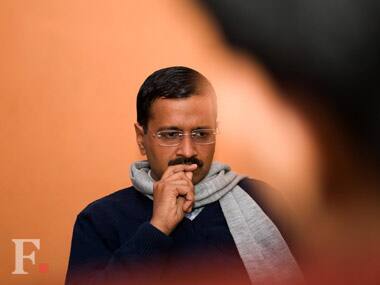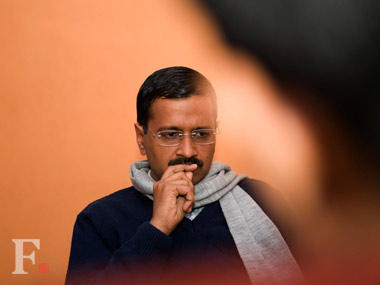By Shanmuganathan Nagasundaram At the outset, I must confess I prefer writing about economic issues rather than political ones. For one, we can expect greater rationality and less emotion in discussing the topic objectively – well, atleast in theory. But economic theories are intimately intertwined with political ones. For example, Communism is based on Marxism, liberalism is based on Keynesian economics (or neo-Keynesian economics, as we are seeing of late), conservatism is based on the monetarist school and libertarianism is based on the Austrian School. Notwithstanding the above, I am not anyway implying a one-to-one relationship between these theories – just that a high degree of correlation exists between these philosophies. I am sure most Marxists would also be Communists and, according to Dr Walter Block (of the Mises Institute), more than 90 percent of the Austrian economists he knows of are also libertarians. That said, most political parties the world over operate around the neo-Keynesian philosophy today - ie, for all the talk of a humble foreign policy and balanced budgets that George Bush spoke about which would be consistent with conservative ideology, he ran the biggest deficits seen till then. Of course, President Obama is now making those deficits look puny by comparison and if he gets a second term, the Bush deficits are going to look like rounding errors. The exception to these big spending political actors may be Ron Paul and Gary Johnson – but the chances that their ilk (or somebody with their ideologies) getting elected is remote, unless there is a full-blown currency crisis. Regrettably, every passing day and every act of the US government and US Fed is pushing the US economy towards one. [caption id=“attachment_481612” align=“alignleft” width=“380”]
 Instead of promising stable prices; promise sound money. [/caption] In India, the BJP supposedly represents the conservative movement. In the US, politicians at least pretend to hold conservative ideals, but even those pretensions are absent in India. Both the two main political parties represent the interests of big government, diminishing civil liberties under the guise of national security and an economy that’s largely driven through central planning. It’s really a hobson’s choice as far as the citizens are concerned – even more so in India, than in the US. At least in the US, one can derive the moral satisfaction of voting for a Gary Johnson, if not electing one. For sure, selling libertarianism is a far tougher act than selling socialism (which is what neo-Keynesianism really is). After all, with 30-plus years in public life Ron Paul is hardly even a recognised name in the US. So what hope do we have in India when even the more educated US citizens do not recognise the need for a sound currency, balanced budgets, limited government and civil liberties? With that as a background, let’s turn to Arvind Kejriwal, who is on the verge of launching a new political party. He is wrong on multiple counts (though his intentions are quite honourable), but the most important one has to be on the issue of “ideology”. Kejriwal says that his party “will not have any fixed ideological positions” – to me, that statement doesn’t make any sense whatsoever. The four political ideologies essentially represent the answer to what each party thinks is the role of government in a society – starting with nearly 100 percent control in the case of Communists to nearly zero in the case of the libertarians. A political party needs an ideology because that’s the starting point to answering every problem or an issue that the government faces. I am sure Kejriwal will change with time, and hopefully, as I will explain later in the article, to libertarianism. The other details mentioned in his vision document at this point in time are not very different from Didi’s random rants. The question of how to achieve better education, health care and stable prices is perhaps the least asked hardball question in the media. That directing greater and greater public resources through existing systems will not solve the problems should be obvious – even if one does not believe in economic ideologies. How then is Kejriwal going to achieve these ends? Why libertarianism? Why Now? I have been writing about the possibility of a world-wide currency crisis for a few years now. Given the monetary and fiscal practices adopted by governments the world over, such a crisis is just inevitable. But with the turn of events over the last few weeks – announcement of QE3 (quantitative easing) by the US Fed, unsterilised and unlimited bond buying announced by Chicago Fed President Charles Evans last week, and the continued QE by Europe, UK, Japan and China, a world-wide currency crisis is not only inevitable, but also imminent. The chances that we will live through another US presidential cycle without such a crisis erupting now appears remote. When the currency crisis erupts, none of the current rank of politicians would have any credibility left. They have virtually overseen the destruction of currency and markets through their fiscal profligacy. So the opportunity for somebody who promises sound money, limited government and the rule of law is just waiting to be tapped. In the same breath, I should also point out that the same crisis would also present an opportunity to a fascist (a la,Hitler) who will promise stability through strong leadership. Either way, a change from the current setup is certain – for better or worse, remains to be seen. So Kejriwal does indeed have an opportunity to bring in the much needed change. But for that, he has to charter an agenda that would bring about greater prosperity through markets and capitalism. For starters, he can do the following: 1) Do not promise stable prices; promise sound money; 2) Do not promise corruption free government; promise limited government; 3) Do not promise education and health; promise the ideals of life, liberty and pursuit of happiness. Shanmuganathan “Shan” Nagasundaram is the founding director of Benchmark Advisory Services – an economic consulting firm. He is also the India Economist for the World Money Analyst_, a monthly publication of_ International Man_. He can be contacted at_
shanmuganathan.sundaram@gmail.com
Instead of promising stable prices; promise sound money. [/caption] In India, the BJP supposedly represents the conservative movement. In the US, politicians at least pretend to hold conservative ideals, but even those pretensions are absent in India. Both the two main political parties represent the interests of big government, diminishing civil liberties under the guise of national security and an economy that’s largely driven through central planning. It’s really a hobson’s choice as far as the citizens are concerned – even more so in India, than in the US. At least in the US, one can derive the moral satisfaction of voting for a Gary Johnson, if not electing one. For sure, selling libertarianism is a far tougher act than selling socialism (which is what neo-Keynesianism really is). After all, with 30-plus years in public life Ron Paul is hardly even a recognised name in the US. So what hope do we have in India when even the more educated US citizens do not recognise the need for a sound currency, balanced budgets, limited government and civil liberties? With that as a background, let’s turn to Arvind Kejriwal, who is on the verge of launching a new political party. He is wrong on multiple counts (though his intentions are quite honourable), but the most important one has to be on the issue of “ideology”. Kejriwal says that his party “will not have any fixed ideological positions” – to me, that statement doesn’t make any sense whatsoever. The four political ideologies essentially represent the answer to what each party thinks is the role of government in a society – starting with nearly 100 percent control in the case of Communists to nearly zero in the case of the libertarians. A political party needs an ideology because that’s the starting point to answering every problem or an issue that the government faces. I am sure Kejriwal will change with time, and hopefully, as I will explain later in the article, to libertarianism. The other details mentioned in his vision document at this point in time are not very different from Didi’s random rants. The question of how to achieve better education, health care and stable prices is perhaps the least asked hardball question in the media. That directing greater and greater public resources through existing systems will not solve the problems should be obvious – even if one does not believe in economic ideologies. How then is Kejriwal going to achieve these ends? Why libertarianism? Why Now? I have been writing about the possibility of a world-wide currency crisis for a few years now. Given the monetary and fiscal practices adopted by governments the world over, such a crisis is just inevitable. But with the turn of events over the last few weeks – announcement of QE3 (quantitative easing) by the US Fed, unsterilised and unlimited bond buying announced by Chicago Fed President Charles Evans last week, and the continued QE by Europe, UK, Japan and China, a world-wide currency crisis is not only inevitable, but also imminent. The chances that we will live through another US presidential cycle without such a crisis erupting now appears remote. When the currency crisis erupts, none of the current rank of politicians would have any credibility left. They have virtually overseen the destruction of currency and markets through their fiscal profligacy. So the opportunity for somebody who promises sound money, limited government and the rule of law is just waiting to be tapped. In the same breath, I should also point out that the same crisis would also present an opportunity to a fascist (a la,Hitler) who will promise stability through strong leadership. Either way, a change from the current setup is certain – for better or worse, remains to be seen. So Kejriwal does indeed have an opportunity to bring in the much needed change. But for that, he has to charter an agenda that would bring about greater prosperity through markets and capitalism. For starters, he can do the following: 1) Do not promise stable prices; promise sound money; 2) Do not promise corruption free government; promise limited government; 3) Do not promise education and health; promise the ideals of life, liberty and pursuit of happiness. Shanmuganathan “Shan” Nagasundaram is the founding director of Benchmark Advisory Services – an economic consulting firm. He is also the India Economist for the World Money Analyst_, a monthly publication of_ International Man_. He can be contacted at_
shanmuganathan.sundaram@gmail.com
Kejriwal, you should reboot your economic agenda
FP Archives
• October 6, 2012, 10:39:12 IST
Arvind Kejriwal’s proposed party may not have a defined economic philosophy. He should embrace libertarianism
Advertisement
)